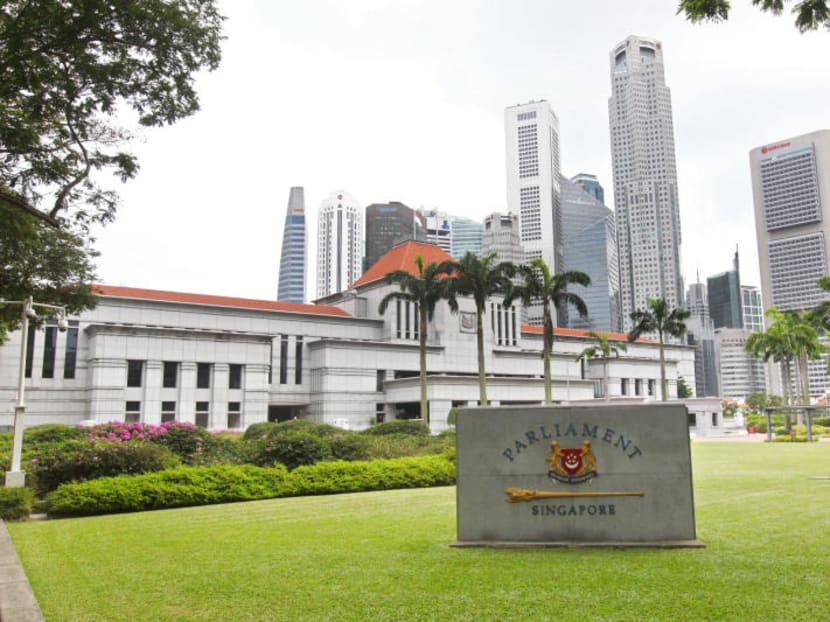Town council framework to be reviewed
SINGAPORE — Ruling out a return to the days when town councils islandwide were run by the Housing and Development Board (HDB), National Development Minister Khaw Boon Wan nevertheless announced yesterday that the town council framework would be reviewed.
SINGAPORE — Ruling out a return to the days when town councils islandwide were run by the Housing and Development Board (HDB), National Development Minister Khaw Boon Wan nevertheless announced yesterday that the town council framework would be reviewed.
The review — to be headed by Senior Minister of State Lee Yi Shyan — would focus on three areas: The duties and responsibilities of town councils vis-a-vis the HDB, the adequacy of town councils’ sinking funds and long-term financial sustainability, as well as the handover arrangements and the transition when the town councils change hands.
Earlier this month, the Ministry of National Development (MND) released its review on the sale of a town council management computer software by the People’s Action Party (PAP) town councils to PAP-owned Action Information Management (AIM).
The review gave the AIM transaction the all-clear but it recommended that the Government conducts a “strategic review” on the roles and functions of town councils, in view of their politicised nature.
Yesterday, Mr Khaw delivered a ministerial statement on the topic. In the ensuing three-hour debate — where 11 Members of Parliament spoke — sparks flew, most notably between Mr Khaw and Workers’ Party chairman Sylvia Lim, and some fingers were pointed by both sides of the political aisle, underlining the acrimonious nature of the handing over process of town councils.
Ms Lim, whose public comments last December — where she attributed the performance of her Aljunied-Hougang Town Council to AIM’s termination of its contract — sparked the chain of events, also rejected MND’s finding that residents’ interests had not been compromised in the deal. In his ministerial statement, Mr Khaw made it clear that “we should not return to a situation where the HDB administers estates all over Singapore, and Members of Parliament have no authority or responsibility over what is done or how well things work”.
Nevertheless, he noted that “political pressures” could lead to town councils “making sub-optimal decisions, resulting in poorer outcomes for the residents”, such as the long- term financial health of town councils — which the MND has “significant concerns” about — when they “take a less stringent and more populist approach” towards recovering arrears for service and conservancy charges.
“Some resort to kicking the can down the road, delaying S&CC increases which are necessary, and creating a serious problem that will emerge later,” he said.
Mr Khaw said the MND has also “observed that town councils do not want to take on more responsibilities, especially if these carry a political cost”. For example, some town councils are reluctant to enforce by-laws strictly, such as on obstruction of common corridors even though this is a fire safety risk.
Before 1989, all the common areas of HDB estates were maintained centrally by the HDB. However, Parliament decided to give MPs more authority and responsibility over the estates in their constituencies, “in order to strengthen the nexus between the residents and their elected MPs”, he noted.
He pointed out that the review team had found that town councils have largely fulfilled their original objectives and have delivered key estate services to residents in ways that “conferred local flavour and met local needs”. With laws crafted to recognise the political nature of town councils, MPs are given latitude to exercise autonomy, he said.
Mr Khaw gave the example of town councils that had appointed fellow party members and unsuccessful election candidates to various salaried jobs. Alluding to the Aljunied-Hougang-Punggol East Town Council run by the WP, he said that a town council had also waived competitive bidding to appoint a company owned by party supporters as its managing agent.
“While MPs have considerable leeway, the substance of each transaction must still be proper and safeguard public interest,” he said.
By and large, all the MPs who spoke wanted the political nature of the town councils to remain. Nevertheless, they felt that the taking and handing over process should be better regulated, for instance.
MPs including Coordinating Chairman of the PAP town councils Teo Ho Pin and Nominated MP Eugene Tan suggested that the MND acts as arbitrator in the event of any disputes. Assistant Professor Tan suggested that appropriate safeguards be put in place to ensure that the politicking does not come at the residents’ expense.
A robust set of protocols and audits could help ensure that any wilful attempt by a political party to politicise a handover would lower its standing in the eyes of the voters, he added.
Moulmein-Kallang GRC MP Denise Phua added: “The decision in 1989 by then-Prime Minister Goh Chok Tong to make elected MPs accountable for maintenance of the housing estates they are voted into is not unsound. However ... 24 years have passed. The political and social landscapes have shifted.”







